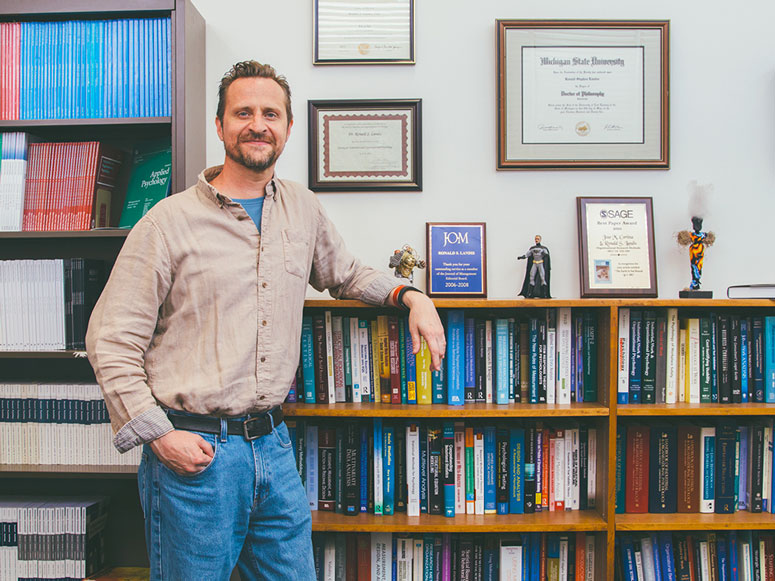
Photo: Michael Goss
If we ask a basketball player to imagine taking the final shot of a game, that player will almost certainly imagine the ball going through the hoop to win the game. Similarly, if you close your eyes and imagine yourself completing an important school or work assignment, you will likely envision yourself being successful, maybe even wildly successful. Failure is not something we generally desire in our daily pursuits. That doesn’t mean, however, that failure cannot provide positive outcomes.
Indeed, there are rather famous examples of individuals who have achieved tremendous success after having failed spectacularly. Stephen King went through 30 rejections before his first novel, Carrie, was accepted for publication. Steven Spielberg was rejected from the University of Southern California School of Cinematic Arts more than once. Thomas Edison tried somewhere between 1,000 and 10,000 times before finally creating the light bulb. We could fill the pages of IIT Magazine with similar examples from individuals across such diverse walks of life as business (Bill Gates), sports (Michael Jordan), and politics (Winston Churchill).
Whenever we perform an activity, whether for work or for play, we routinely receive feedback, positive or negative, from our environment and adjust our behavior accordingly. We can all recall those times in our own lives when we were the recipients of positive feedback in the form of praise, adulation, or congratulations. Perhaps it was related to landing a big account, scoring the winning touchdown, or solving a particularly challenging problem. We may reflect on those times as successes.
We can also likely recall times when we were the recipients of negative feedback such as scolding, receiving a poor grade, or perhaps even getting fired. Although these failure experiences may not elicit a smile, they are nonetheless absolutely critical if we want to learn about our capabilities, understand our strengths and weaknesses, and ultimately improve our performance.
“Failure may not be an option, but it is certainly an opportunity.”
Despite the self-learning that can occur, failing is not a pleasurable experience. In the moment, we likely experience feelings of inadequacy, incompetence, anxiety, or any number of other unpleasant states. What is important about a failure experience is not the particular event, but rather, how the event is perceived and interpreted. If we refuse to see failing as a learning opportunity, we consign ourselves to allowing the failure to define us
One of the most important—and repetitive—failure experiences in my professional life is the rejection of papers submitted to academic journals. It is quite common to spend months, if not years, working on a research project, developing a manuscript, and submitting it to a top journal, only to have it rejected for publication. I learned very early in my graduate training that such rejection (failure) is to be expected and that my reaction should be to learn from the reviewer’s criticisms, then revise the paper and resubmit it. Ultimate success can only be attained by incorporating the negative feedback and learning from past experiences.
We have all failed and will continue to fail. Instead of focusing on the sting that might be associated with these events, we would do well to maintain a focus on how the experience will make us stronger in the future. Failure may not be an option, but it is certainly an opportunity.